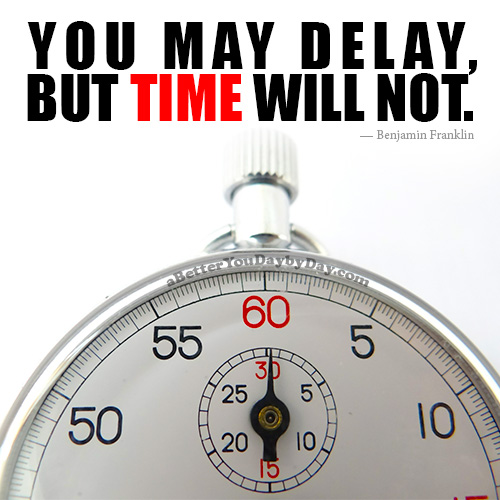When we are stressed out, our attitude changes. Sometimes, we become short-tempered. Other times, we simply disregard what’s happening around us. Stress can become so overwhelming that we often lose the ability to keep track of time or do activities that make us happy.
There are several ways to reduce stress, and one of them is to manage your time. But as most experts would point out, we cannot change time. Time is something that limit all of us. Whether you’re a businessman, an employee, an actor, a king, a dictator, or a politician, your day is limited to 24 hours. However, we can control our perception of time.

Have you ever wondered why time went by so fast when you were enjoying your long weekend at the beach? On the contrary, it took forever for the clock to reach 5pm last Friday at work. This due to the fact that you haven’t fully grasped how to manage your time.
Thinking about finishing your work at the end of the day is stressful enough. How much more if you haven’t accomplished a thing and you still have a ton of things to do at home? Below are some pointers for you to manage your time more effectively and reduce stress in the process.
Plan your day and write your plan. If you have a plan, you’ll know where you’re going. It’s easy to forget the plan though. That’s why writing it down is a must. Writing implies action, and it’s the first step to making you remember what you thought about. Putting it in writing doesn’t necessarily mean that you must always have a pen and paper handy. If you’re carrying a smart phone with you at all times, chances are there’s a calendar app in there that lets you type your plans for the day. It may even allow you to sync with your online account so that you can access that calendar from your computer.

Set a time limit. Planning your activities and not setting a limit to them is like taking on a project without a deadline. You’ll barely get anything done if you don’t set a limit. Moreover, setting a time limit is like budgeting your finances. When you have a deficit or a surplus, you’ll know right away and you’ll be able to act on it accordingly.

Prioritize. Now that you have a time limit, learn to prioritize the things that are most important to you. Prioritizing will help you eliminate your easier and least productive tasks and lets you focus on rewarding but tough undertakings.
Identify and minimize your time wasters. Now that you have a plan, set a time limit for it and or organized it according to priority, you’re ready to determine the things that encourage you to procrastinate and be less productive. Do you find yourself checking your emails more often than usual? Does your leisure time eat up a significant portion of your weekday? Do you have a habit of viewing your social media accounts several times per hour? These are just some of the things that you need to figure out. If they are not a priority, treat them as such.
We can only do so much in a day. Dealing with stress is certainly not what we want to write on our daily planner. Thus, learning how to manage your time effectively is one way to deal with it. Properly managing time doesn’t just reduce stress, it improves your productivity as well.














